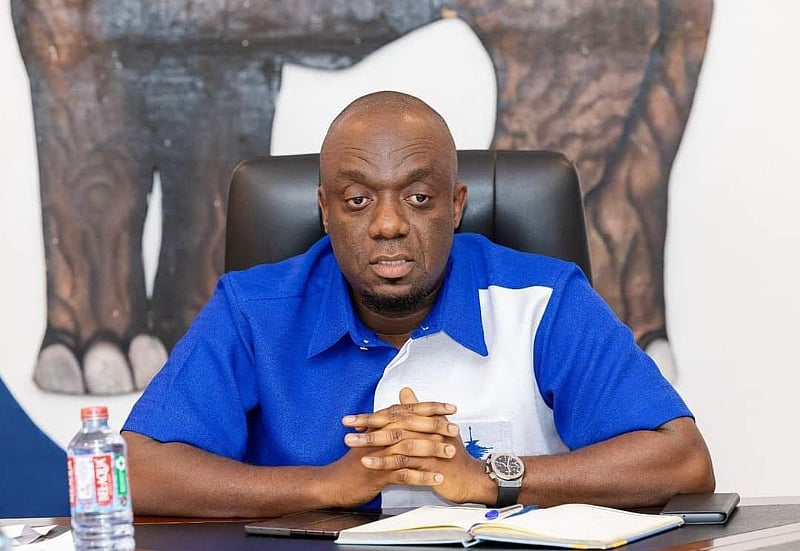The New Patriotic Party (NPP) suffered a resounding defeat in the 2024 general elections, losing the presidency and a significant number of parliamentary seats to the National Democratic Congress (NDC). Official results, with one constituency still pending, indicated a decisive victory for NDC candidate John Dramani Mahama, who secured 56.42% of the votes, translating to 6,591,790 votes. NPP’s presidential candidate, Dr. Mahamudu Bawumia, trailed significantly with 41.75% of the votes, amounting to 4,877,611 votes. In the parliamentary elections, the NDC secured an absolute majority of 183 seats, relegating the incumbent NPP to a minority position with only 88 seats. This dramatic shift in power represents a significant setback for the NPP and has prompted internal reflections on the factors contributing to their electoral loss.
NPP General Secretary, Justin Frimpong Kodua, offered a unique perspective on the party’s defeat, attributing the outcome primarily to spiritual factors rather than solely political dynamics. In an interview, Kodua expressed disbelief at the scale of the loss, characterizing it as an unprecedented event where NPP supporters appeared to have collectively abstained from voting across all sixteen regions of the country. This, he argued, defied conventional political explanations and pointed towards a more ethereal influence at play. He posited that the observed voter apathy within the NPP’s base was not a typical political phenomenon and suggested a need to explore alternative explanations beyond traditional political analysis.
Kodua’s assertion delves into the realm of spiritual warfare, alleging that the NPP was subjected to significant spiritual manipulation leading up to the 2024 elections. He believes that unseen forces in the spiritual realm significantly influenced the electoral outcome, impacting the party’s performance and ultimately contributing to their defeat. This perspective highlights a belief system within the political landscape where spiritual intervention is seen as a potent force capable of swaying electoral fortunes. It suggests a complex interplay between the physical and spiritual dimensions of the political contest, a perspective that may not resonate with all observers but underscores the deep-seated beliefs held by some within the party.
Furthermore, Kodua contends that the NPP’s spiritual support base was weakened due to internal discord and grievances within the religious community. He claimed that many pastors and intercessors, who would typically offer prayers and spiritual support to the party, withheld their blessings due to unresolved issues and anger. This withdrawal of spiritual support, he argued, had a detrimental impact on the party’s electoral fortunes, creating a spiritual vulnerability that potentially contributed to the loss. This explanation adds another layer to the narrative of spiritual influence, highlighting the importance of maintaining strong relationships with religious figures and communities within the political context.
The General Secretary’s explanation emphasizes the perceived importance of spiritual favor in achieving political success. He implies that the absence of fervent prayer and spiritual backing from key religious figures left the party vulnerable to spiritual attacks and negatively impacted voter turnout. This perspective underscores the significance of religious endorsements and spiritual support in mobilizing the electorate and securing electoral victory, particularly within a context where religious beliefs hold significant sway over individual choices and collective actions.
Kodua’s attribution of the electoral loss to spiritual factors offers a unique and potentially controversial interpretation of the 2024 election results. While political analysts may focus on tangible factors such as campaign strategies, policy platforms, and economic performance, Kodua’s perspective highlights the role of belief systems and spiritual influence within the political arena. This interpretation, whether accepted or contested, adds a layer of complexity to the analysis of the NPP’s defeat and underscores the diverse perspectives on the factors that shape electoral outcomes in Ghana. It remains to be seen how this interpretation will be received within the party and the broader political landscape, and whether it will influence future political strategies and engagement with religious communities.














